Maya. Joyce. Jill. If you are an avid watcher of MSNBC, you know these women by their first names. They are legal analysts, but I think of them as the Avengers—only talking is their superpower, and right now, for them and their fans, the Zombie Apocalypse is in D.C.
Once relatively obscure, toiling in the trenches of our criminal justice system, these women have become celebrities in their own right, showing up at moments of crisis to help the average Joe and Josephine understand the law. They educate, they entertain, and, in particularly stressful times, they can calm many viewers down. (Just as Fox analysts calm other people down. People who are not me.)
There are, of course, excellent men in this role. In the Tiger Beat magazine for pundits that exists in my head, the foldout is dreamy Chuck Rosenberg. But there is something about this particular sisterhood that is powerful.
Cable audiences seem to agree: while Fox is still the most-watched cable channel in primetime, according to Gallup, MSNBC had its best quarter ever, finishing second and besting CNN overall, and while it’s impossible to make a direct correlation, anecdotally at least, the appearance of these She Hulks can goose a show on a slow news day.
I gathered four of them at MSNBC World Headquarters (otherwise known as a conference room): Maya Wiley, Joyce Vance, Jill Wine-Banks, and the new girl in town, Berit Berger, to discuss the impact of the 24-hour news cycle, the role of legal punditry, and other more superficial matters.
Talk to me about how you see your roles on television.
JOYCE VANCE: Sometimes people wonder if we study the issues before appearing every day. We spent our careers studying the issues. I worked in D.O.J. for 25 years. I’m still astonished and a little bit happy that my fellow citizens want to know more about how the Justice Department works.
But for us, this is, if you ever worked at the Justice Department, you have an ongoing obligation to help people understand the rule of law and why it matters. And that’s what we’re all doing.
MAYA WILEY: I think part of it is also making people feel more competent about their citizenship. It feels like an incredible privilege. And it’s not a question of validating them all the time. It’s more like telling people, “This is how the law works.”
It seems to me that one of the most valuable things about all of you on air is that you all project a kind of effortless authority and calm.
JILL WINE-BANKS: That’s what a lot of people have said to me. I was in a film about Watergate that premiered at Telluride. And the rule at Telluride is, you never approach any of the stars. But with me it’s different. Everyone comes up to me. And often they say, “You keep me sane.”
Does the level of anger in this country right now surprise you?
BERIT BERGER: Yeah. Like I got an email to my school account [she also works at Columbia University] saying, “You should die. You should be killed.” And honestly, that day I’d been talking about something so innocuous. Like, describing the standard for a search warrant or something.
What?
BERGER: Yeah. Apparently the Fourth Amendment equals death. But I got to say, it was scary.
VANCE: I think we get those in waves, though. Barb McQuade and I are always laughing, because we seem to get them from the same people. So don’t worry about it.
WILEY: Exactly. Or if it’s someone who’s over the bounds—I mean, I had someone say something racist to me. And my Twitter followers just jumped on it. I didn’t have to do a thing.
WINE-BANKS: There was a time you had to keep me down, because somebody accused me of being a white racist, on television. And I was sitting next to Maya, who took my hand and said, “Don’t react.”
WILEY: Yeah.
WINE-BANKS: Someone called my house and threatened my grandchildren. And I don’t have children, so I don’t have grandchildren. So obviously it was a silly threat. But it was scary, someone who hated me enough to dial my number.
VANCE: But the nice emails—I have to say, the nice emails far outweigh the bad.
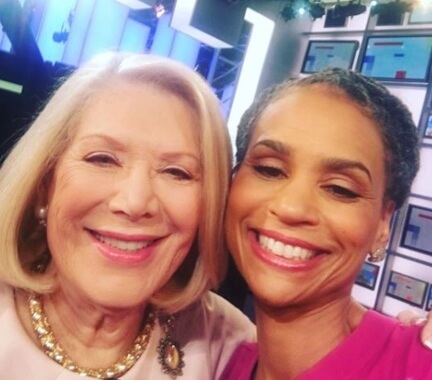
“So great to have real time with @jillwinebanks.” Image: Maya Wiley/Instagram
Let me guess one of the most frequently asked questions: What’s the deal with George Conway [a public critic of Trump, his wife’s boss]?
WINE-BANKS: How about that marriage! I want to see breakfast at their house.
WILEY: Well, I did tweet that once! “I wonder what dinner is like at their house.” And I got this really nasty, “Why is that any of your business?” I didn’t respond. But I felt like saying, “Because they’re doing this publicly. Like, they kind of made it my business.”
Read More: Kirsten Gillibrand: The Star that Trump Built
And you all get a lot of Twitter love, even with the craziness and rancor.
VANCE: Twitter’s much cheaper than paying a therapist.
What do you think about the polarization of the media?
WINE-BANKS: I’ve thought about this a lot. Because during Watergate, there were three networks. And they all had the same facts. And that’s a big difference now, because we are dealing with the Kellyanne Conway alternative facts, and then what we think are facts.
And as much as I believe to the core of my soul that what we are saying are the facts, I know that the people who are watching Fox equally believe what they’re hearing. Which is the opposite of what we’re saying and what we’re hearing. It’s a very troubling thing.
In the old days people would argue about what the meaning of the facts were. They didn’t argue about the facts. And you can’t have a rational discussion unless you agree on the facts.
Here you are, this bunch of serious, accomplished women and I tell you I’ve had debates with obsessed friends about your hair and makeup and clothes. And I’m not the only one. Maya has an entire Twitter account devoted to her hair. So let me ask you a few silly questions …
WINE-BANKS: A lot of comments I get go like this: “We learn so much from you. And can I just say … what color lipstick are you wearing?”
Joyce, you’ve really glammed up.
VANCE: I don’t look like this unless I’m in New York. The men and women who do makeup and hair at MSNBC are incredible. I have worn more makeup in the last two years than I wore in the 56 before it.
WINE-BANKS: And my pins. They have fan pages on Pinterest. And men send me pins. It’s not just women.
Read More: Judy Geib: From Graphic Designer to Celebrated Jeweler
Tell me about the pins.
WINE-BANKS: I’ve worn them since high school They used to be just pretty pins. And one of the first times I was on MSNBC, I noticed all the men were wearing flag pins. And I thought, that’s so trite. I’m not going to do that.
And I pulled out this pin, which I picked to wear today because it was the very first. And it’s like, a World War I or II celluloid pin—an eagle holding a sign that says “Defend America.” And I thought, “Well, that’s better than just a flag. But no one will notice it, because it’s very unnoticeable. It sort of blends in.”

Jill Wine-Banks’ Defend America pin. Image: Jill Wine-Banks/Facebook
But they noticed.
WINE-BANKS: They did. I thought, Well, if I can communicate, Defend America in a pin, I should start wearing pins that have a message. And then it somehow just got out of hand. I don’t know how many I have, but I had to hire someone to help me organize them.
WILEY: You see, actually this stuff isn’t superficial. Your pins have meaning. And someone starting a Twitter account for my hair, it matters. Black women say to me: “We’re so proud of you. You’re black, you’re female, you’re on television, and your hair is natural”—which says to many, “We can be who we are and still be recognized as authority.” That is not superficial.
WINE-BANKS: Sure, there’s superficiality. During Watergate I was known as the “miniskirted lawyer.” Which is totally sexist. And distressing. But that forced me to think about how we present ourselves is part of how we’re believed.
As a trial lawyer, you have to present yourself in a certain way to have credibility. And the same is true on television. I mean, if I came on wearing, you know, hot pants and no makeup, people might not listen to me. So we have to look authoritative.
WILEY: You, we would listen to [laughter]. It’s true. You really could come on with hot pants.
WINE-BANKS: But don’t you think we have to really present ourselves in a way that we’re credible?
WILEY: I have rules. I definitely want to look like a lawyer. But—like, I love earrings. Earrings for me are like Jill’s pins. But I don’t wear my huge earrings, right? I don’t wear my big sista-girl earrings.
I will still wear the earrings that I feel, like, are very important to me in terms of my own self-expression. But it’s within a boundary. You need the boundaries so people can pay attention to what you’re saying, not the earrings.
WINE-BANKS: Yes. Yes.
BERGER: I love the conversation about the glamour of this. Whenever I feel glamorous, something happens. Like, two weeks ago, they were doing my hair in the makeup room, and the guy pulls out a Lucky Charm from my hair. And I was like, Well, this tracks.
Tell me about your family’s reaction to your fame. Or am I overestimating the fun of this?
WILEY: Oh, my 15-year-old actually just lectured me the other day about how unhappy she is that I’m on TV. She feels a loss of privacy because she’s been photographed with me at events, and now those photos are online. On the other hand, she likes that Vince Staples follows me on Instagram. And she likes telling her friends that.
VANCE: You are never a prophet in your own home. I have four kids, and they don’t watch. But my husband has taken to texting me. I’ll look down at my phone, it’ll just say, “Smile. You need to smile.” Oh yeah? Say something helpful, honey. Send me something factual. But it’s like, “You need to smile. Why are you wearing your glasses?”
WINE-BANKS: Well, my husband loves it. He watches live, usually. I mean, unless it’s a morning show. But if it’s at night, he loves watching it. And then he’ll watch it, and we’ll watch it when I get home. And I’ll say, “We don’t have to watch it a second time.” And he’ll say, “No, I love watching it.” So.
WILEY: That’s sweet!
WINE-BANKS: Yeah. It’s very sweet. Yeah. I got a good one.
VANCE: At the end of the day, what gets you about this job is the effect you can have on people’s lives. People will walk up to you on the street or in the airport, and they know who you are. Your kids are mortified. So—right there, that’s a fringe benefit. You can embarrass your kids easily.
But, you know, some of the things people say are really touching. I had a man walk up to me last week, I was walking on Madison Avenue. And he said, “You know, I always turn on the TV when I get to my hotel room. I travel for business a lot.” And he said, “I just like to listen to all of you. It’s home.”

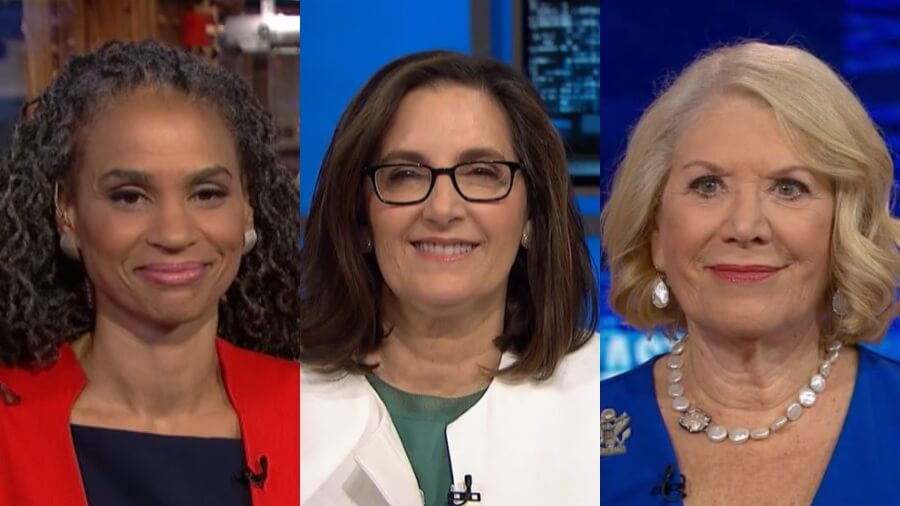




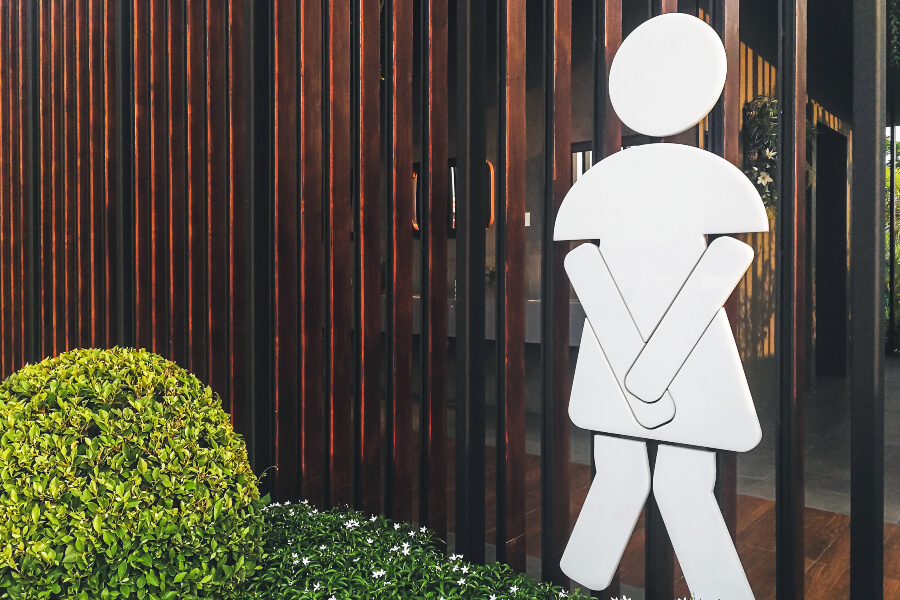






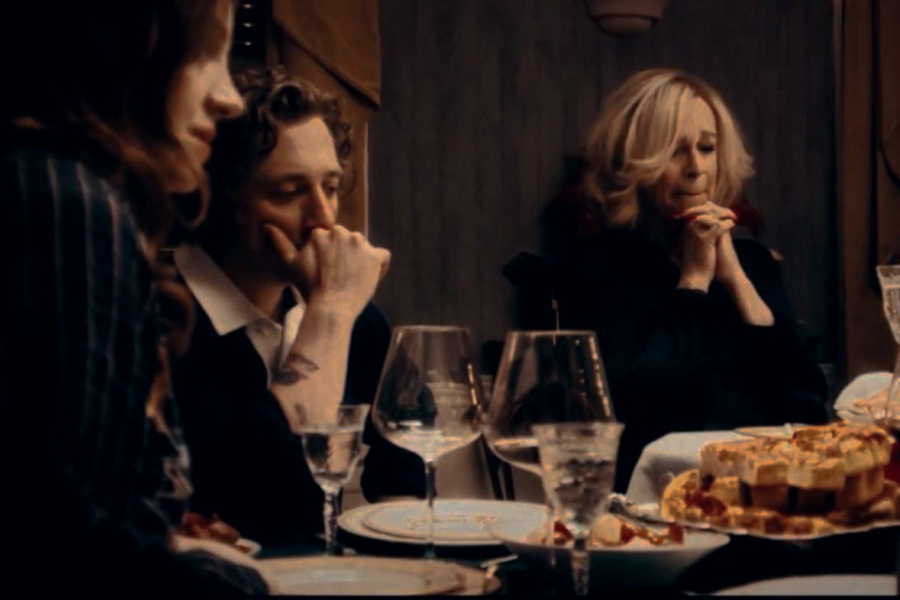



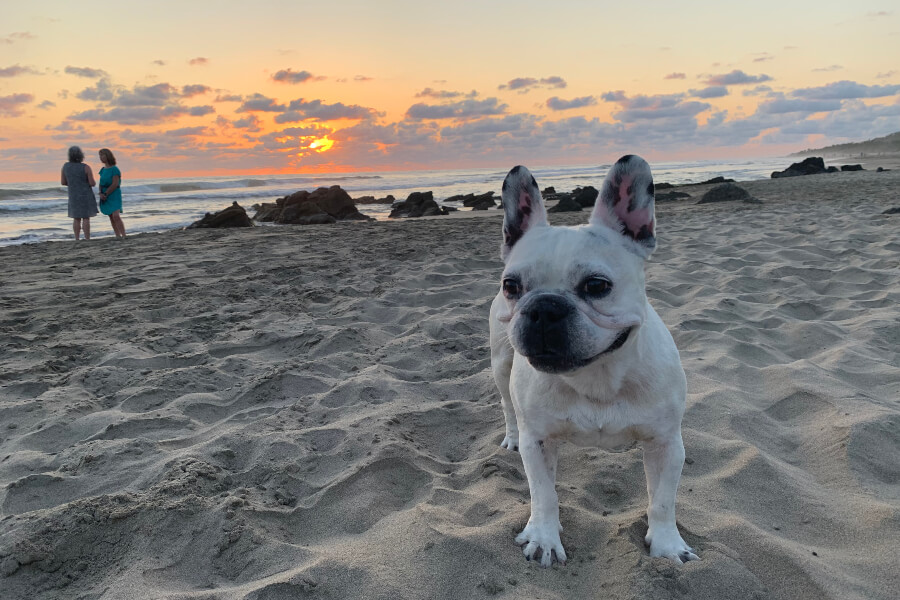



0 Comments